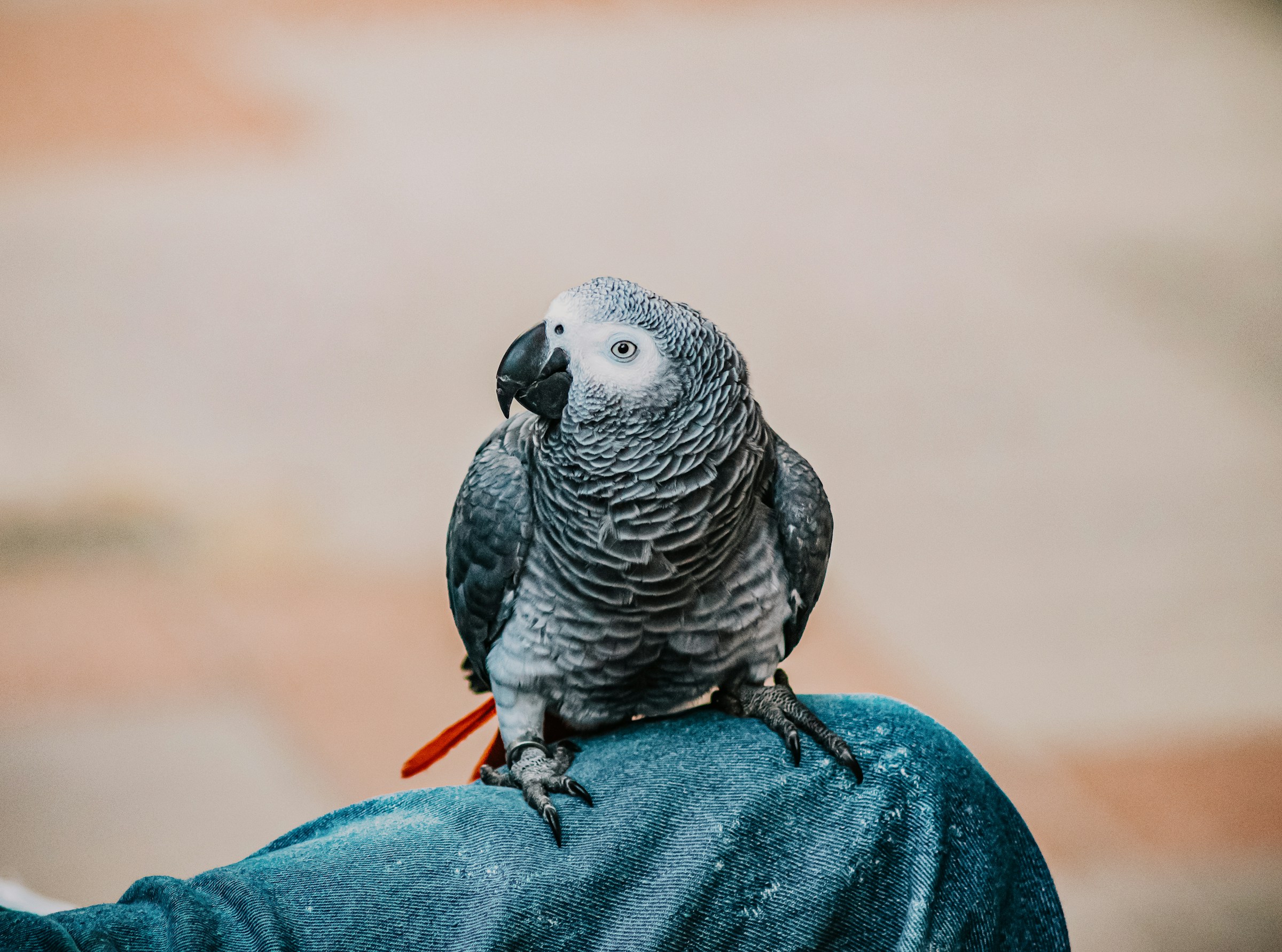How to Create a Balanced Enrichment Program for an Intelligent Parrot Species Like the African Grey?

African Grey Parrots stand as one of the most intelligent bird species, capable of amazing cognitive ability and emotional depth. Parrot enrichment is more than just a way to keep your pet entertained—it’s a crucial component of their mental wellness. Like their human companions, parrots require mental stimulation and engagement to live a happy, fulfilling life. This article will guide you on creating a balanced enrichment program for your African Grey Parrot. It will cover the importance of providing the right toys, implementing a varied diet, and spending quality time outside the cage for your feathered friend.
The Importance of Toys in Parrot Enrichment
When we think of parrot enrichment, toys are often the first thing that comes to mind. They serve as a vital tool for mental stimulation, helping to prevent boredom and behavioral issues such as feather plucking or excessive screaming.
In parallel : What’s the Best Approach to Introduce Clicker Training to a Senior Dog?
Toys are not just playthings for parrots but also serve as a tool for foraging—an instinctual behavior that parrots engage in the wild. In their natural habitat, parrots spend a considerable amount of time searching for food. Foraging toys that hide food items can mimic this behavior and keep your pet engaged for hours.
Choose toys that are safe and suitable for your African Grey’s size and personality. Some parrots may prefer complex puzzle toys, while others might enjoy shredding toys. The key is to observe your bird’s preferences and provide a variety of toys to keep them stimulated.
Also to see : How to Identify and Address Obsessive Compulsive Behaviors in Siamese Cats?
But remember, toys are not a substitute for interaction. They’re an integral part of an enriched environment, but your parrot also craves your companionship.
The Role of Diet in Parrot Enrichment
Food is more than just a necessity for survival—it’s a significant part of enrichment for birds. The diet you provide your African Grey can greatly impact their health and behavior. A well-balanced diet that includes a variety of foods can boost their mental stimulation and overall wellbeing.
Pellets should form the base of your parrot’s diet, but it shouldn’t stop there. Fresh fruits, vegetables, and occasional treats can provide a range of flavors and textures that your parrot will enjoy. Try to introduce a new food item every week, and observe your bird’s reaction. Some may be hesitant at first, but with patience and consistency, they’ll soon look forward to meal times.
Remember, not all human foods are safe for parrots. Always research before introducing a new food item, and when in doubt, consult your veterinarian.
Enrichment Beyond the Cage
While cages provide a secure space for your bird, it’s essential to provide them time outside the cage for mental and physical stimulation. Supervised out-of-cage time allows your parrot to explore a larger environment, providing sensory experiences that a cage can’t offer.
Set up a safe, bird-proof area where your African Grey can fly, climb, and explore. Providing a play stand with toys, perches, and foraging opportunities is an excellent way to enrich their out-of-cage time.
Interaction with you during this time is crucial. Engage with your parrot through games, training sessions, or simply spending time together. Remember, parrots are social creatures—they thrive on interaction.
Training and Mental Stimulation for Parrots
Training is a powerful tool for parrot enrichment. Not only does it teach your bird new skills, but it also strengthens your bond and provides mental stimulation.
Training sessions should be short but frequent. Remember, the goal isn’t just to teach tricks—it’s to engage your parrot’s mind and build a better relationship.
Positive reinforcement is the most effective training method for parrots. Reward desirable behavior with treats, praise, or petting, and ignore undesirable behavior. Never punish your parrot, as it can lead to fear and mistrust.
Monitoring and Adapting Your Enrichment Program
Creating an enrichment program for your African Grey is not a one-time task—it requires ongoing observation and adaptation. What works for one bird might not work for another. Even within the same species, each bird is an individual with unique preferences and needs.
Monitor your parrot’s behavior closely. Changes in behavior can indicate whether an enrichment activity is working or not. If a certain toy is ignored, try a different one. If your bird shows signs of stress during out-of-cage time, adjust the environment.
Finally, remember that enrichment is a lifestyle, not a quick fix. It’s about creating an environment that caters to your African Grey’s physical, mental, and emotional needs. With patience, observation, and creativity, you can provide an enriched life that your intelligent feathered friend truly deserves.
Social Interaction and Bonding with Your African Grey
One of the central elements in creating a balanced enrichment program for an African Grey parrot is the focus on social interaction. Given their intelligence and emotional depth, African Greys thrive on companionship, both from their fellow feathered friends and their human caretakers.
Fostering a strong bond with your pet bird is crucial. You can achieve this by spending quality time with them every day. This could involve playing games, teaching new tricks, or simply talking to your bird. African Greys are known for their impressive mimicry skills, and they might even start picking up on your words and phrases, adding another level of interaction between you two.
The right kind of social interaction can help prevent a variety of health issues like feather plucking, which is often associated with stress or boredom. It’s important to remember, however, that quantity should not overshadow quality. The time you spend with your African Grey should be focused and engaging for the bird.
If you have more than one pet bird, ensure they have opportunities for socializing with each other as well. This can be facilitated by arranging playdates or simply placing their cages in close proximity. In addition, remember that social media platforms can also be a great source of advice and tips from other parrot owners.
Creating a Safe and Stimulating Environment for Your African Grey
The physical environment of your African Grey is a paramount consideration in your enrichment program. Providing a safe and stimulating bird habitat can go a long way in ensuring a quality life for your feathery companion.
When selecting a cage, opt for a spacious one made of stainless steel that is easy to clean and free from toxins. Ensure that the cage bars are appropriately spaced to prevent your bird from getting its head stuck. The cage should be big enough for your bird to stretch its wings fully and move around with ease.
Inside the cage, include a variety of toys for mental stimulation. Also, ensure your African Grey has access to food and water at all times. Using stainless steel bowls can be a good option as they are easy to clean and can’t be chewed up.
For out-of-cage time, create a bird-proofed area in your house where your African Grey can fly and explore freely. This can significantly enhance their physical health and mental well-being.
Wrapping Up: A Balanced Enrichment Program is a Long-Term Commitment
Creating a balanced enrichment program for your African Grey is not a one-off effort, but an ongoing commitment. It involves continual observation, patience, and adjustments based on your bird’s preferences and behaviors.
Whether you’re selecting toys from a pet store, introducing new food items to their balanced diet, or spending quality time with your pet parrot, remember that the ultimate goal is to foster an environment that caters to your bird’s physical, mental, and emotional needs.
Embrace the opportunity to understand and connect with these intelligent creatures on a deeper level. Each step you take towards enriching your African Grey’s life not only contributes to their happiness and health but also strengthens the special bond between you.
Remember, every African Grey is unique. What works for one may not work for another. So, keep experimenting with various enrichment strategies, and don’t hesitate to consult with a veterinarian or parrot expert if you encounter any difficulties. In the end, the reward of witnessing your African Grey thrive in its enriched life is truly priceless.
